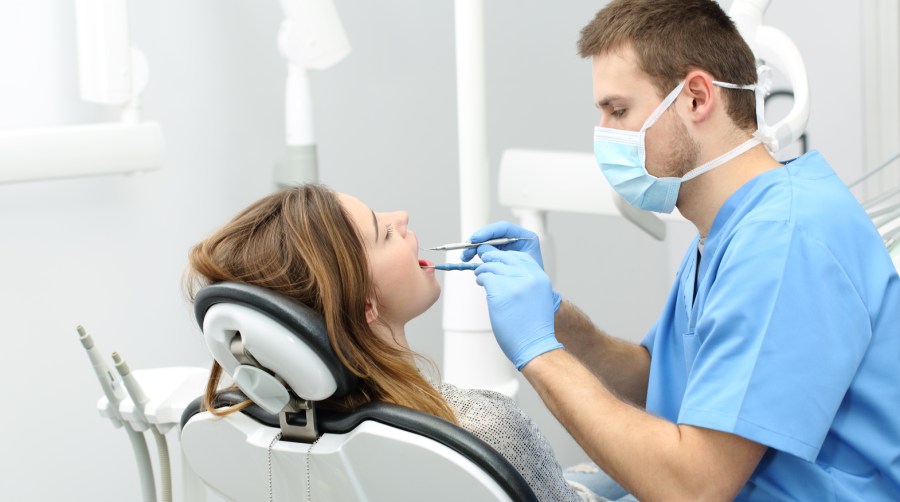How to Continue Education for Dental Hygenist

Dental hygienists are primarily responsible for cleaning patient's teeth and educating them on how to maintain good oral health. They work alongside the dentist to help prevent oral diseases by using a selection of tools and equipment to perform preventative dental care on teeth and gums. If you choose to have a career as a dental hygienist, you will have a wide range of job opportunities available to you, from working in a private dental practice to hospitals, public health clinics and even teaching.
What Skills Do You Need?
Dental hygienists are highly qualified professionals who require a range of important skills. Firstly, you will need extensive knowledge of dental procedures to safely perform tasks such as dental assessments and the identification of concerns, using X-ray machines, and employing the correct dental tools to effectively clean a patient's teeth and gums. Dental hygienists may also be asked to assist the dentist in more complicated procedures, such as root canals and fillings.
As a professional who is consistently working in close proximity to patients, you will also need to have excellent people skills. Dental hygienists have a friendly disposition and can communicate with others easily. They need to be able to discuss medical histories, dental routines, procedures and preventative measures with patients. A strong eye for detail is paramount. As a dental hygienist, you will also need manual dexterity skills in order to hold dental tools and safely perform intricate procedures.
Education is the first step to gaining employment as a dental hygienist. It is typical to hold an associate's degree at the minimum, and you can expect to be studying between two to four years. These programs are offered at a variety of colleges around the country, such as community colleges and technical colleges. Study will consist of a combination of classroom-based work, lab work, and practical experience in a clinic to prepare you for the real world. You may choose to pursue further studies in dental hygiene, such as a Bachelor's degree or a Master's degree, which may increase your chances of finding employment in this field and open up an even broader range of opportunities, including teaching and administration.
Licensing and Further Qualifications
In addition to attaining an associate's degree, you will need to be licensed in all 50 states to acquire a job. This can only begin after completing studies at an accredited dental school and will usually involve passing a clinical exam. Dental hygienists also need to be qualified in administering CPR and be willing to undergo a background check when applying for most positions. It is not unusual to find that dental hygienists will continue to study courses in dental hygiene to educate themselves about their profession and stay on top of developments in the industry for the entirety of their career.
Searching for a Job
When searching for a job position in dental hygiene, it's important to know which area of the industry you would like to work in. The majority of jobs are available in hospitals, but you may also choose positions in a private clinic, nursing and residential care facility, government, research facility, schools, and more. Of course, your choice of city and state will also affect job demand. Once you are qualified, the best place to look for a position are job boards. Sites such as Indeed, Glassdoor, CareerBuilder, CareerCast, SimplyHired and Monster are great places to start sending in applications. Social media such as LinkedIn is also a great tool for building networks in the field that can open many doors to career opportunities if you connect to the right people and groups.
Landing a Position
In order to land that important job position, most employers will want to see a number of significant additions in your portfolio for you to succeed in the application process. Firstly, your CV is integral to finding employment. List all of your important personal information and achievements to date, such as education, employment history, awards, membership associations and any voluntary experience. Next, you will need to include a copy of your state license to prove you are an 'RDH' – a Registered Dental Hygienist. Letters of references from past employers are essential, as well as a CPR Certificate. Lastly, any documentation you have that provides evidence of further education in dental hygiene is sure to be appreciated when applying for a job in this field.
Source: https://www.bloglines.com/article/how-to-get-a-job-as-a-dental-hygenist?utm_content=params%3Ao%3D740010%26ad%3DdirN%26qo%3DserpIndex&ueid=fafaa3ea-be84-4cff-bd9f-d824fbf86241
0 Response to "How to Continue Education for Dental Hygenist"
Post a Comment